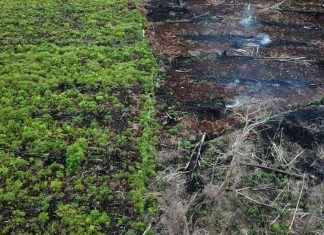TOKYO , Fumio Kishhida was reelected as Japan’s prime minister after his governing party won a significant victory in key parliamentary elections. He stated that the coronavirus is still the most pressing issue in Japan and promised to address the crisis.
Kishida briefly met with Joe Biden, the U.S. president, at the U.N. summit on climate. He said that he hopes to visit Washington before the end of this year to strengthen the bilateral alliance, amid growing concerns over China’s rise.
After his Wednesday reelection in parliament, Kishida established his second Cabinet. He kept all but one of his ministers that he had appointed when he assumed office on October 4.
He stated that the economy, national security and the pandemic are his top priorities.
Kishida stated that Coronavirus is still the most pressing issue at a late-night press conference. He promised to outline new measures this week in preparation for any increase in cases.
He said that they will include an increase in hospital capacity to ensure patients have access to beds in case of infection. Many patients couldn’t find beds in hospitals after August, when the number of new daily cases soared to approximately 25,000, and the health care system was virtually destroyed. Some even died at home.
He said that the government will distribute 600,000.000 COVID-19 oral medications to medical facilities by December 31st. They also hope to secure 1,000,000 more doses. Kishida stated that Japan will soon begin offering booster shots to anyone aged 18 and older who has received their second dose within the past eight months.
Japan is trying to expand its social and economic activities slowly. Kishida stated that his government will gradually decide whether it’s safe to allow foreign tourists to return to Japan by testing small-scale packages tours. He said, “The infections have slowed down but we shouldn’t be too optimistic.”
Kishida’s immediate tasks include compiling an economic stimulus package worth 30 trillion yen ($265billion). This will provide cash payouts for low-income households as well as coupons for children. These payments and coupons are expected to be released next week. Some criticize these measures as pork barrel spending. To fund the projects, he also plans to pass an additional budget before the end of the year.
Kishida reiterated the promise to create a self-reinforcing circle of growth and economic distribution through his economic policy of “new capitalism”. He also promoted salary increases. He intends to negotiate with labor management and company managers to increase pay and raise the government-set salary for positions such as caregivers, kindergarten teachers, and nurses.
He stated, “I want everybody to feel the benefits of growth.”
Kishida, a former foreign minister will continue to prioritise the Japan-U.S. Security Alliance and promote a vision for a “free, open Indo-Pacific” with all democracies including Quad dialogue members Australia, India, and the U.S.
Kishida stressed the importance to have a stronger military in light of China’s increasing power and influence, and North Korea’s nuclear and missile threats.
Kishida was elected by parliament just over a month back. He called a quick election in which the Liberal Democratic Party won 261 seats in 465-member Lower House, giving him enough power to push through legislation.
His Oct. 31 victory was a boost to his power and was seen by voters as a mandate for his government, which had been in place for only weeks. Kishida stated that he saw the results to be a sign that voters preferred stability to change.
The Liberal Democrats chose Kishida as a conservative, safe choice one month ago. They feared losing large numbers of votes if Yoshihide Sug, the former prime minister, remained in power. After only one year in office, Suga was resigned because of his handling of the coronavirus pandemic as well as his determination to hold the Tokyo Olympics despite fears of a virus surge.
Experts believe that the better-than-expected election results could give Kishida’s government more power, time, and space to fulfill campaign promises, such as strengthening Japan’s defense capabilities.
His Cabinet changes may also help to strengthen Kishida’s hold on power.
Yoshimasa Hayashi (ex-education minister) was named the new foreign secretary. Toshimitsu Mtegi, the former foreign minister, was moved to the No. 2 post in the governing party. 2 position.
Motegi took over for Akira Amari who was a party heavyweight and resigned due to his poor election performance after a bribery scandal.
Kishida also named Gen Nakatani, a former Defense Minister, to the newly created position of special advisor on international human rights issues. This will focus on Chinese actions in western Xinjiang and Hong Kong.
Many of Kishida’s ministers are first-timers. However, important posts were held by members of influential party wings like Taro Aso, former Finance Minister, and Shinzo Abe, a conservative ex-Prime Minster.
He also pledged to intensify efforts to reach his conservative party’s long-cherished goal, revising the U.S.-drafted Pacifist Constitution.






